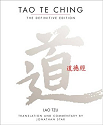The Nature of Truth
1. Not absolute or complete
2. Properly related in size or degree or other measurable characteristics
absolute
1. Perfect or complete or pure
2. Complete and without restriction or qualification
3. Not limited by law
4. Expressing finality with no implication of possible change
5. Without conditions or limitations
6. Not capable of being violated or infringed
The words of truth are always paradoxical because there are different levels of truth (relative). What is "truth" at one level is not necessarily "truth" at other levels. Quite often, higher levels of truth render lower ones irrelevant and obsolete. For something to be truth at all, it must be relevant and beneficial to oneself, and all others, without exception. Truth is universal and impersonal. It applies to all and excludes no one. The truth is still the truth even if it's rejected or not currently understood. Everything you believe, is the truth, but only to you, and only because you believe it's the truth. The real truth already is what it is despite our opinions and beliefs about it. Truth never creates or perpetuates problems. It only solves, dissolves, and removes problems. In order for something to be Absolute Truth, it must be unlimited, whole, complete and perfect beyond description. For this to be possible, it must be INFINITELY EVERYTHING beyond change, words, mental concepts, form, and physicality. In other words, it is No-Thing, yet Infinitely Everything, yet beyond both because both are mere concepts.
Labels: absolute, definition, enlightenment, infinite, relative, truth






 AddThis
AddThis

























0 Comments:
Post a Comment
<< Home